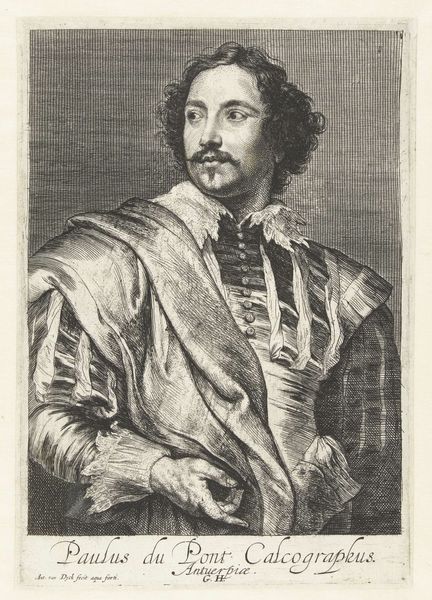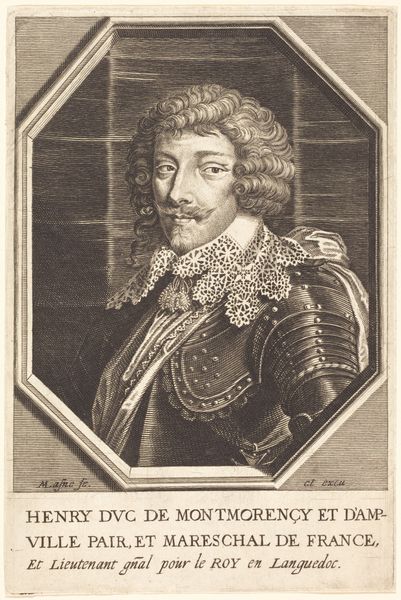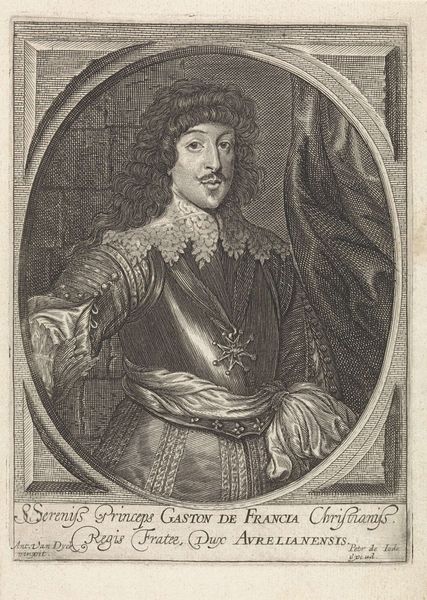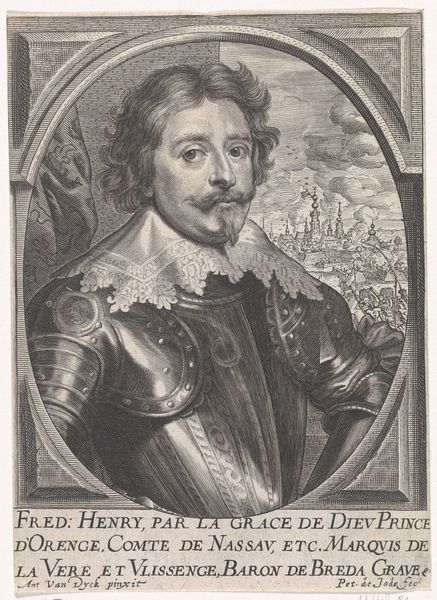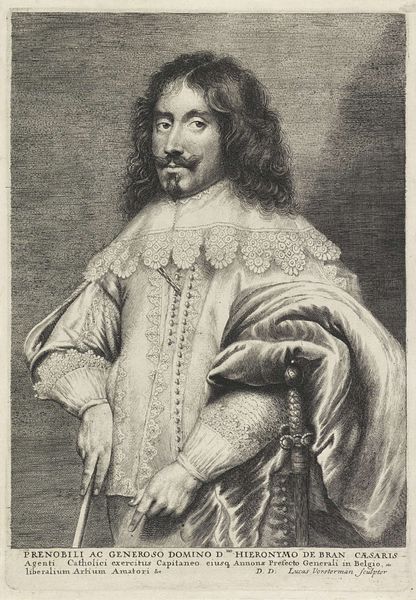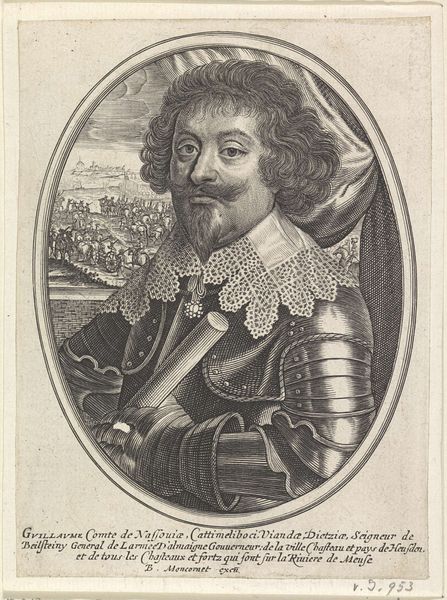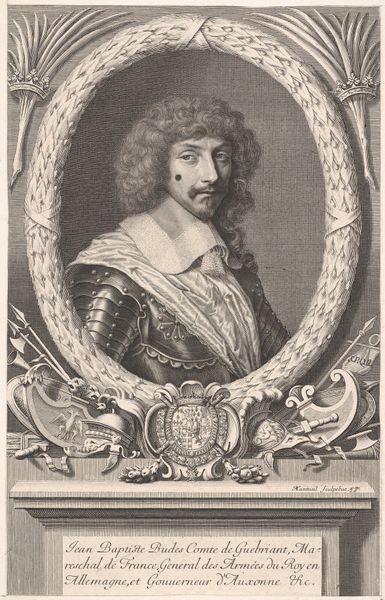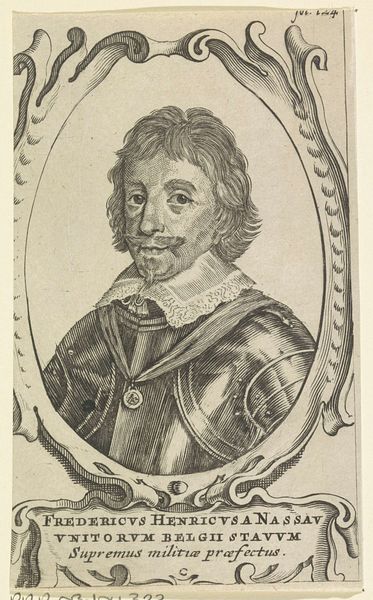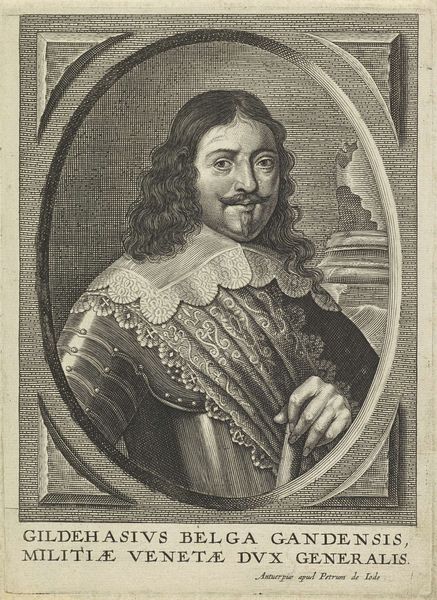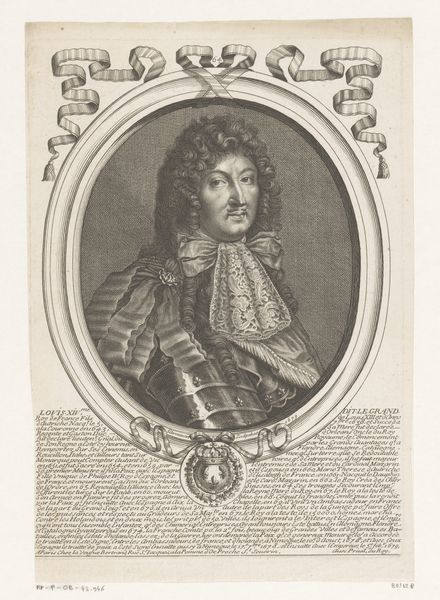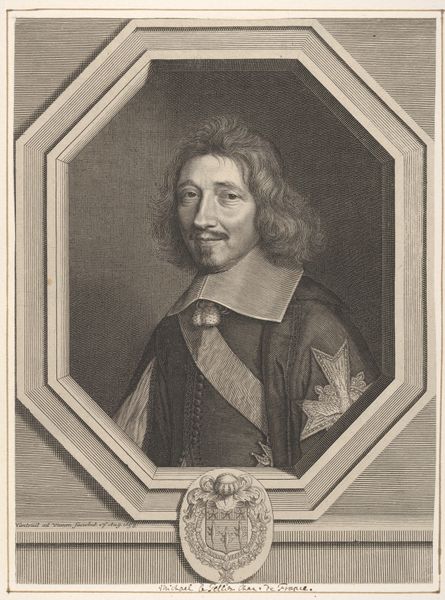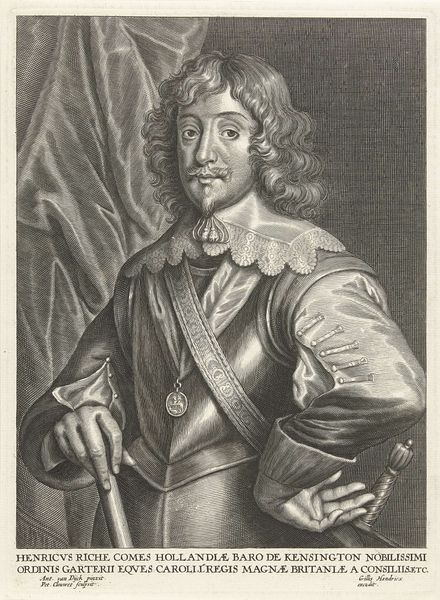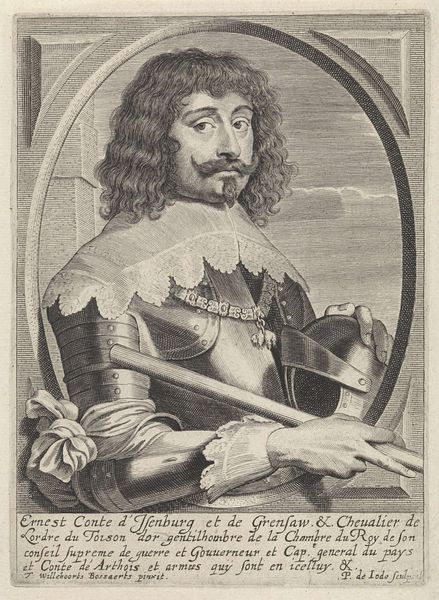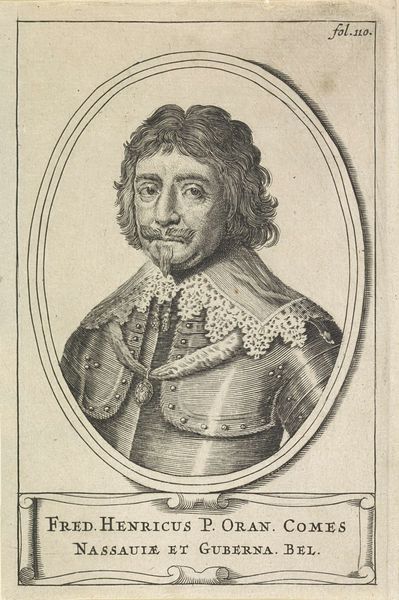
print, engraving
#
portrait
#
baroque
# print
#
old engraving style
#
charcoal drawing
#
portrait drawing
#
genre-painting
#
history-painting
#
engraving
Dimensions: height 258 mm, width 190 mm
Copyright: Rijks Museum: Open Domain
Editor: This is "Portret van Antoine de Bourbon graaf van Moret", a Baroque-style engraving made sometime between 1623 and 1660 by Pieter de Bailliu, currently residing in the Rijksmuseum. I am struck by the detail in the clothing and the somberness of the portrait. How do you interpret this work, and its role within the period in which it was made? Curator: What immediately stands out is the carefully constructed performance of masculinity. Here we see Antoine de Bourbon presented as powerful, through very specific visual cues; notice his dress, but more subtly the controlled pose, the hand resting on the sword. Consider also the political context of the period: illegitimate children of royalty like Antoine still held social and political sway, reliant on a specific performance of legitimacy. The engraving is more than a likeness, it's a statement of power. Does that resonate with your understanding? Editor: Absolutely! So you're saying that this image reinforces existing power structures? That the artist wasn't just portraying the man, but a strategic image? Curator: Precisely! Engravings like these circulated widely, reinforcing and disseminating certain ideologies and ways of understanding power. Think about who had access to these images, and what messages they were internalizing about lineage, power, and identity. Even something as seemingly straightforward as a portrait operates within a much larger web of cultural and political meanings. What are your thoughts now? Editor: I didn’t realize how staged and strategic even historical portraiture could be. Curator: And how essential to uphold societal narratives.
Comments
No comments
Be the first to comment and join the conversation on the ultimate creative platform.
